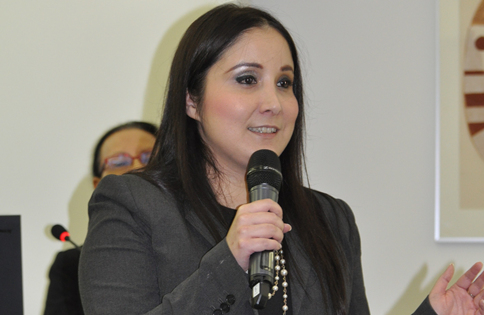
Diversity
Five steps to quash your inner bias
Unconscious bias in the workplace is a hidden force that undermines diversity and impacts our daily decision making.

An awareness-raising session, organised by ICC World Business Women (WBW) in conjunction with ArbitralWomen, took place on 30 January seeking to demonstrate that even those who consider themselves to be impartial and open minded remain unaware of their ingrained preconceptions.
Session presenters Vanina Sucharitkul, a lawyer with Herbert Smith in Hong Kong and a member of the ICC International Court of Arbitration, and Mireze Philippe, Special Counsel at the Secretariat of the ICC Court and Founding Co-President of ArbitralWomen, challenged a full room of participants of ICC staff with a test to expose how bias exists in every one of us.
“The decisions we make are dictated by feelings anchored within us,” said Ms Philippe, who also explained that unconscious bias was not inherently bad and serves us well when it helps us to identify and flee danger. “Our choices and decisions are based on thoughts and impressions built from childhood, without us being conscious of them.”
Presenting case studies, including several of her own experiences, Ms Sucharitkul called on participants to send the message that a lack of diversity in today’s work environment is unacceptable.
Ms Sucharitkul and Ms Philippe outlined several actions that could be taken to address our inner bias and contribute to better decision making. Here we bring you five of them:
1. Recognise the problem
Recognising our bias is the first step to addressing it as acknowledgement of the problem leads to a willingness to question our own judgement.
2. Analyse the data
Wherever possible collect data and analyse it to identify where bias exists. In 2016, the ICC International Court of Arbitration began publishing statistics on the gender balance of ICC tribunals as part of the Court’s drive to improve transparency and diversity in international arbitration. Underrepresentation of women on tribunals is a widespread issue across arbitration institutions but it is hoped that the Equal Representation in Arbitration Pledge will raise awareness of the issue among the worldwide arbitration community.
3. Make decisions collectively
Bias is reinforced by culture and manifested through our behaviour, said Ms Philippe. Involving others or making decisions collectively can help balance opinions and make the decision making process more objective.
4. Expose yourself to the unfamiliar
Everyone has the capacity to change preconceived ideas and prejudices. Just spending time with people who are different from yourself can help you see things differently and overcome bias.
5. Be supportive of others
“Be a scientist of your own behaviour: Small changes can have a significant impact,” said Ms Sucharitkul, who urged those in leadership roles to lead by example. Ms Sucharitkul’s tips for leaders include giving credit where it is due and highlighting the work of those whose cultural backgrounds might make them less likely to promote themselves and/or their work.
About World Business Women
Launched in 2012, WBW is ICC’s staff-driven initiative which aims to bring the benefits of diversity and better gender balance to the world business organization.
WBW objectives include working to evolve ICC culture and practice and to ensure that ICC’s internal policies, leadership and representative bodies better reflect the diversity of the business and professional world today.
About ArbitralWomen
ArbitralWomen is an international non-governmental organisation with the primary objective of advancing the interests of women and promoting female practitioners in international dispute resolution.
Co-founded by Ms Philippe and arbitrator and mediator Louise Barrington in 1993, ArbitralWomen enjoys observer status at the United Nations Commission on International Trade Law (UNCITRAL) Working Group Sessions.

